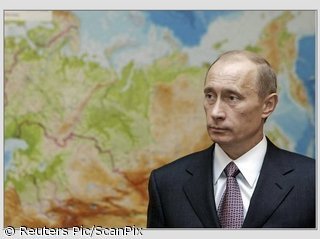Hungary will probably postpone euro adoption from 2008 to 2010 because of high inflation and budget deficits
Published:
26 February 2004 y., Thursday
Hungary will probably postpone euro adoption from 2008 to 2010 because of high inflation and budget deficits, Finance Minister Tibor Draskovics said. The National Bank of Hungary (MNB) has argued for faster adoption, saying it will boost growth.
Draskovics detailed some proposed cuts in state expenditure. Plans include reducing the number of higher civil servants, such as government advisors and state secretaries; the number of state-run foundations; and support for ethnic Hungarians abroad.
January inflation was higher than the Finance Ministry expected, at 6.6% yr/yr and 2.1% month-on-month. It expects annual inflation in 2004 to be near the higher end of its 6%–6.5% target band.
The February budget deficit is anticipated to be about Ft 180 billion (Ђ684 million), boosted by interest payments, Finance Ministry sources said. The estimated February gap would push the two-month figure to Ft 399 billion, or 43% of the full-year target.
Industrial output grew 6.4% in 2003, after a 2.8% increase in 2002, the Central Statistics Office (KSH) said. In December output fell 0.8% month-on-month.
Real wages rose by 9.2% in 2003, as the result of a 14.3% rise in average net wages and twelve-month consumer price inflation of 4.7%, the KSH announced.
The government wants to raise R&D spending to 1.8%–1.9% of GDP by 2006, and to 3% by 2010, Prime Minister Pйter Medgyessy said. Last year the figure was barely above 1%.
The number of operating businesses in Hungary rose 2.6%, to a total of 969,559 in 2003, including not-for-profit and budget-funded businesses, the KSH said.
Šaltinis:
bbj.hu
Copying, publishing, announcing any information from the News.lt portal without written permission of News.lt editorial office is prohibited.
The most popular articles
 Statistics Lithuania informs that based on provisional data as of 1 April 2008 foreign direct investment (FDI) made LTL 33.63 billion, or by 2.8 per cent less than on 1 January 2008.
more »
Statistics Lithuania informs that based on provisional data as of 1 April 2008 foreign direct investment (FDI) made LTL 33.63 billion, or by 2.8 per cent less than on 1 January 2008.
more »
 Boston-based Celent LLC has published a new report about the state of the Turkish credit-card market, which has developed rapidly over the last decade and is expected to represent a high-growth opportunity.
more »
Boston-based Celent LLC has published a new report about the state of the Turkish credit-card market, which has developed rapidly over the last decade and is expected to represent a high-growth opportunity.
more »
 Fastest annual revenue growth since 1999 fuels 32% increase in earnings per share.
more »
Fastest annual revenue growth since 1999 fuels 32% increase in earnings per share.
more »
 First Data Shareholders to Receive $34 per Share in Cash;
Transaction Valued at $29 Billion
more »
First Data Shareholders to Receive $34 per Share in Cash;
Transaction Valued at $29 Billion
more »
 Belarus' international reserves decreased by 3.8 percent in January 2007 to $1,329.9 million as of February 1, according to the National Bank of Belarus (NBB).
more »
Belarus' international reserves decreased by 3.8 percent in January 2007 to $1,329.9 million as of February 1, according to the National Bank of Belarus (NBB).
more »
 The Minsk Tractor Works (MTZ) manufactured nearly 172 billion rubels worth of industrial products in the first month of 2007, which was a 19.8-percent year-on-year increase.
more »
The Minsk Tractor Works (MTZ) manufactured nearly 172 billion rubels worth of industrial products in the first month of 2007, which was a 19.8-percent year-on-year increase.
more »
 The Belarusian government plans to borrow up to $1 billion abroad this year to cushion the effects of a sharp hike in the price of energy resources.
more »
The Belarusian government plans to borrow up to $1 billion abroad this year to cushion the effects of a sharp hike in the price of energy resources.
more »
 Russia's Audit Chamber has suggested reviewing all economy agreements between Belarus and Russia, Andrei Kokoshin, head of the standing committee on CIS affairs in the State Duma (Russia's lower parliamentary house), said on Thursday.
more »
Russia's Audit Chamber has suggested reviewing all economy agreements between Belarus and Russia, Andrei Kokoshin, head of the standing committee on CIS affairs in the State Duma (Russia's lower parliamentary house), said on Thursday.
more »
 Belarus is contemplating the purchase of two oil wells in Russia, a senior executive at the Belneftekhim state-controlled petrochemical concern said Tuesday.
more »
Belarus is contemplating the purchase of two oil wells in Russia, a senior executive at the Belneftekhim state-controlled petrochemical concern said Tuesday.
more »
 Aleksandr Lukashenko warned that a slowdown of Belarus' economic development pace could undermine public confidence in the government and damage the country's image in the international arena.
more »
Aleksandr Lukashenko warned that a slowdown of Belarus' economic development pace could undermine public confidence in the government and damage the country's image in the international arena.
more »